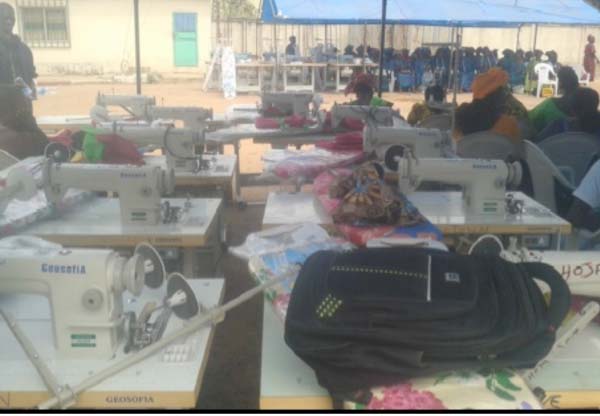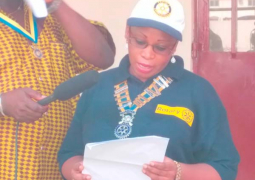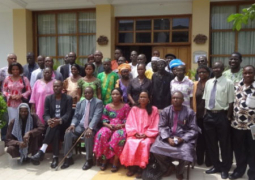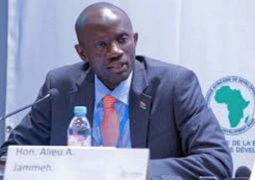
The training was organised with funding from the Arab Bank for Economic Development in Africa (BADEA) and coordinated by the Islamic Educational and Scientific Cultural Organisation (ISESCO).
Held from 16 February to 1 March 2016, the training ended with a colourful closing ceremony held at Kanifing Municipal Council premises.
The closing witnessed the handing over of sewing and embroidery machines with a cash amount of $520 to each participant as well as certificates, electric irons and ironing tables.
Speaking on the occasion, Bintou Gassama-Jammeh, deputy permanent secretary at the Office of the Vice President, commended the Women’s Bureau for initiating such training saying it will enhance women’s economic opportunities for sustainable development and livelihood.
“The training will go a long way in enhancing the capacity and income of the beneficiaries,” she said while urging the participants to continue building their own future and let their dreams become a reality.
She said as each of the training beneficiaries could make a difference in building a stronger Gambia through building stronger families and communities.
The executive director of Women’s Bureau, Binta Jammeh-Sidibeh, said in June 2015, through UNESCO and ISESCO, the Bureau received a sponsorship package of more than $17,000 for the training of 45 women on management of small businesses and income generating activities.
She said due to the successful implementation of the said programme in 2015, the same partners came again with another proposal which resulted in the funding of a project to train twenty women on sewing and further give the women some cash as a startup capital.
“The training is unique because it provided participants with material and technical support as high quality sewing and embroidery machines, and a cash amount was given to each participant to set up a tailoring workshop,” she said.
The Women’s Bureau executive director pointed out that the total amount of the training was $31,400, equivalent to D1,300,000.
Momodou Sanneh, secretary general of UNESCO NATCOM, said the training was borne out of the need to enhance the capacities of women in the fields of sewing and embroidery.
It was meant to increase the women’s income generation capacity to support their families and contribute meaningfully to the development of their communities with the ultimate aim of poverty reduction.
Read Other Articles In Article (Archive)




